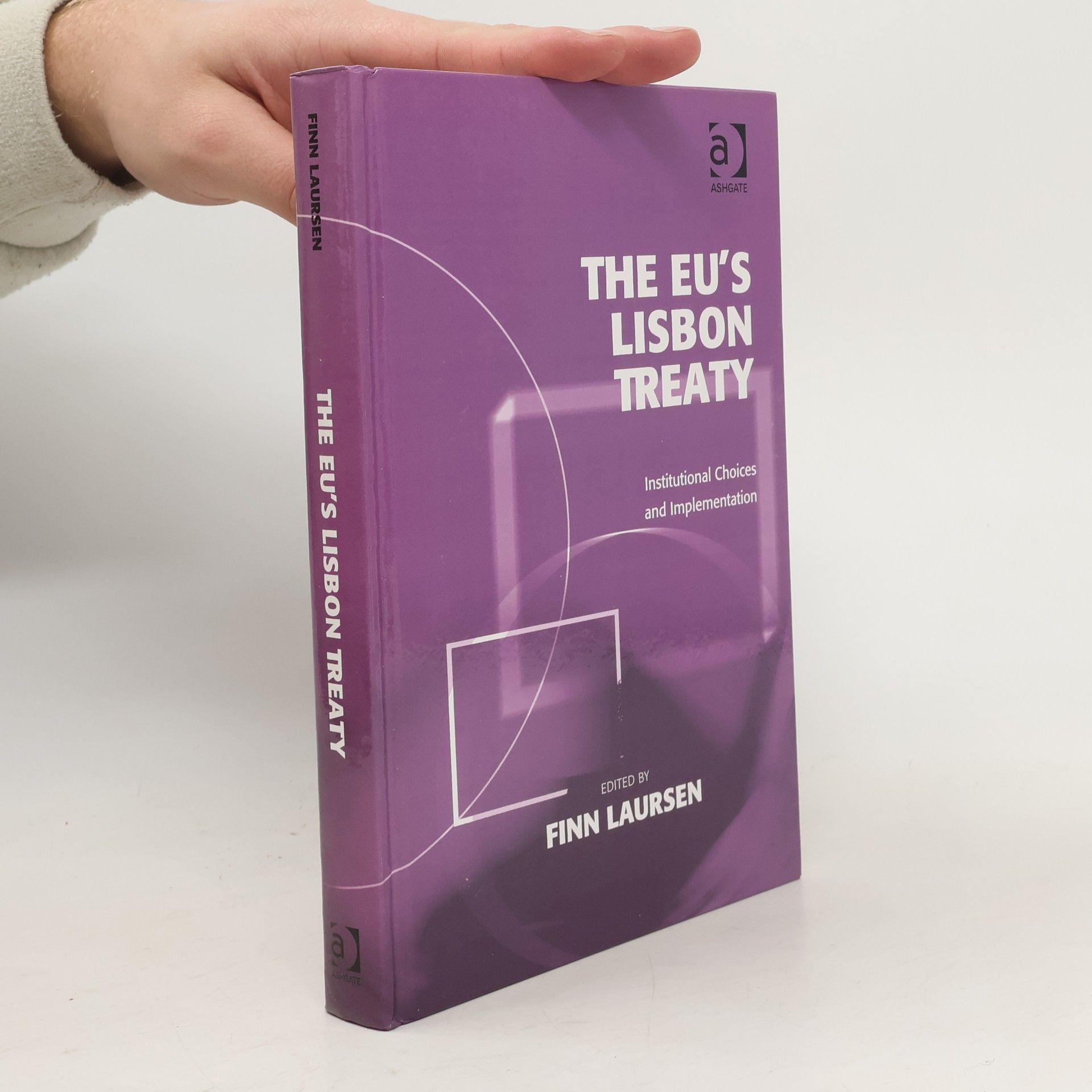The EU's Lisbon Treaty
- 302 pages
- 11 hours of reading
This book gathers leading international scholars to examine the institutional choices and innovations of the Lisbon Treaty and discuss the likely effects of the changes that it set out to accomplish. Will the changes meet the declared goals of a more efficient and democratic Union which will allow the EU to act internationally with greater coherence and efficiency? If institutions matter, how much do they matter? How significant is the Lisbon Treaty? What kind of leadership will be available in the post-Lisbon EU?
